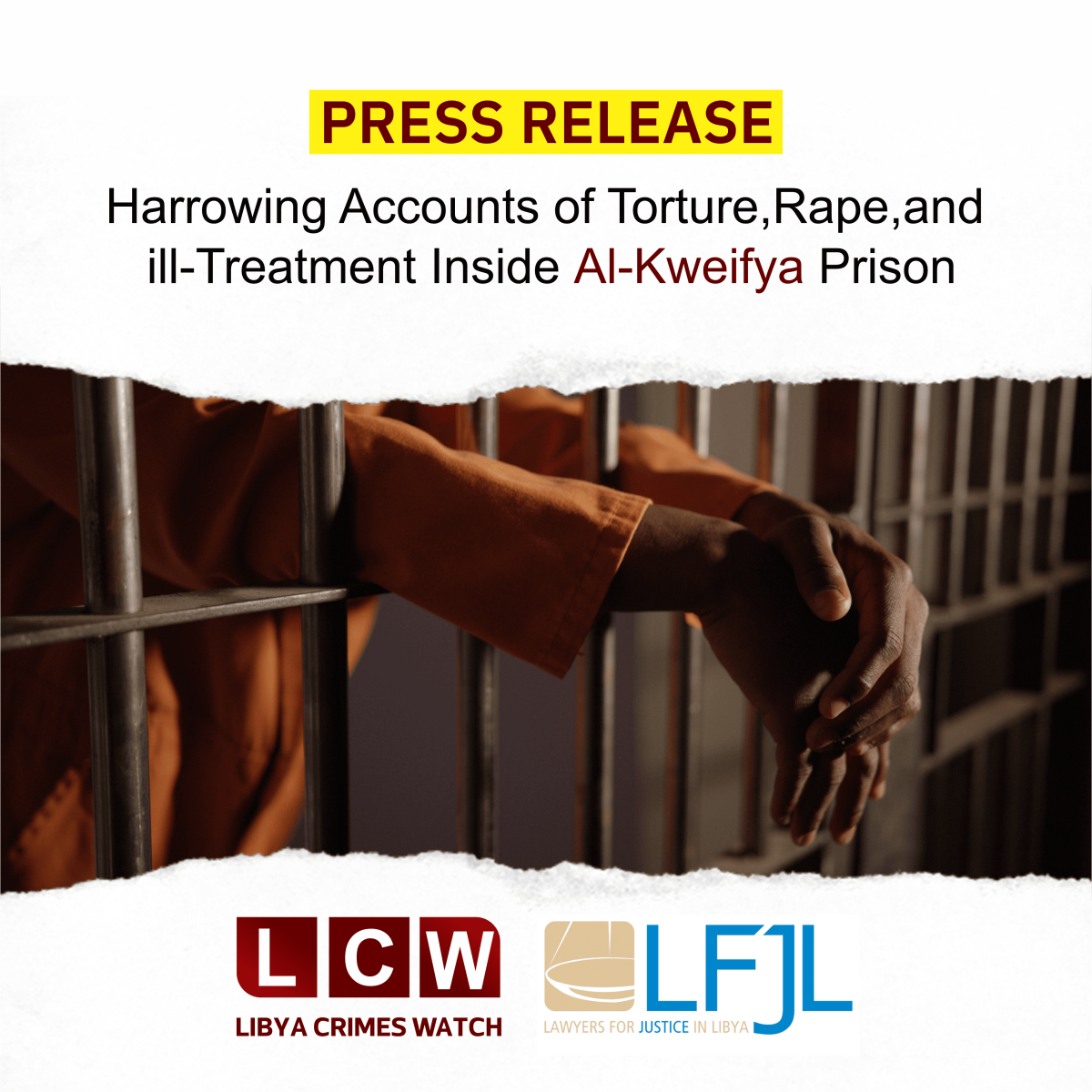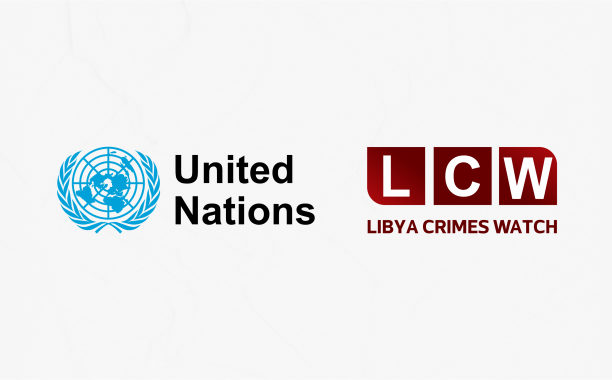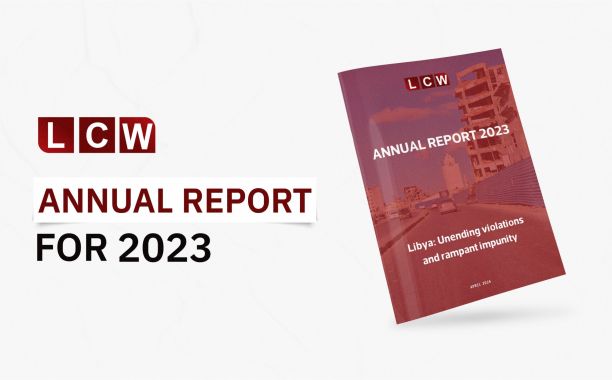Press release: Harrowing accounts of torture, rape, and ill-treatment inside Al-Kweifya prison

Lawyers for Justice in Libya (LFJL) and Libya Crimes Watch (LCW) have documented harrowing testimonies of torture and other ill-treatment taking place inside Al-Kweifya prison, east of Benghazi, under the control of Field Marshal Khalifa Haftar.
Five former detainees have shared their distressing experiences of abuse and witness testimonies of the abuse of other inmates inside the Military Police wing of Al-Kweifya prison, in which flagrant human rights violations have been committed against those being held in the prison. These include enforced disappearance, lack of access to medical care, arbitrary detention, torture, rape, ill-treatment, and deprivation of access to family and legal counsels.
According to the testimonies obtained, the Military Police wing of Al-Kweifya holds 700 inmates, including detainees awaiting military trials, prisoners who are serving their sentence and inmates facing arbitrary detention – those who have completed their prison sentence or who were never tried. The witnesses we spoke to noted that some detainees have been held arbitrarily for over eight years without trial.
Before arriving at Al-Kweifya, accused individuals are often detained, interrogated, and tortured by different security agencies such as the Internal Security Apparatus or Tariq Ben Ziad Brigade. The victims detailed the arbitrary reasons for their arrest such as posting critical opinions to the Libyan Arab Armed Forces (LAAF) and its head Khalifa Haftar on social media, enrolment of the detainee’s family members in combat operations against the LAAF, and trade disputes with officials or other people of influence. Other detainees have also been arrested and detained based on profiling that they originate from a particular city, or on the unfounded suspicion that they are part of radical Islamist armed groups. Most of the detainees are held on trumped up charges that include belonging to banned groups and carrying out attacks against the Libyan State, resorting to counter terrorism laws, namely Article 14 and 15 of Law No. (3) of 2014 Related to Countering Terrorism. As a result, those accused are to stand trial before the Libyan military courts.
Once inside Al-Kweifya, the witnesses state that severe beatings all over the body are routine practice to punish detainees, with one victim describing how a prisoner emerged from a beating with a broken leg. The Falaqa method – a process of beating the soles of a person’s bare feet with a stick – is regularly used to punish detainees, often collectively against inmates in a particular cell.
The Military Police wing consists of four wards with 41 cells in total. One of the four wards, known as ‘the stack’, is considered the worst regarding living conditions. Each cell in ‘the stack’, as with the other wards, is severely overcrowded measuring approximately 3.5 metres x 4 metres, occupied by 15 detainees. Given the lack of mattresses, prisoners are obliged to sleep on the floor. There is poor ventilation in the cells with a small window of about 50 x 20cm. There is a small toilet in each cell, with no warm water as the use of water heaters is banned.
There are 14 solitary confinement cells in Military Police Wing, measuring approximately 2 metres x 2 metres with no window, no bed or mattress, and no lighting. Sometimes up to four inmates are placed in cells intended for solitary confinement. The witnesses explained that because of this, tuberculosis and hepatitis are widespread and any prisoner who shows symptoms is kept in solitary confinement with no medical attention.
Between 2017 and 2022, there were at least 16 incidents of deaths in custody at Al-Kweifya military wing. Cases of kidney failure, severe bleeding due to haemorrhoids, and untreated cancer were all causes of inmate deaths reported by the witnesses. One witness stated that “my friend died [in there], they beat him brutally on his kidneys. But also because of the drinking water, it is salty and smells like sewage.” The witnesses also stated that medicines delivered by NGOs and relatives of the inmates are often confiscated by the guards and prison directors, and are not administered to the ill. All witnesses interviewed by LFJL and LCW confirmed that anyone who spoke out against the conditions in detention were punished as an example to other detainees.
The witnesses provided the names of those allegedly responsible for prison conditions and treatment of detainees, including Faraj Alzabo – Former Director of Al-Kweifya Military Prison and current Director of Prisons under the control of the LAAF and the Military Police Department. According to one of the testimonies, Alzabo subjected an elderly man believed to be over 70 years old, to severe torture by repeatedly striking him with a plastic pipe while hanging him from the ceiling. Assistant Commander Bashir al-Juhani, and officers Khalifa al-Khashbi and Hussein al-Darsi are also identified in allegedly participating in the abuse of detainees.
Prison director Juma Al-Muhashashah is identified by the witnesses for implementing a policy of systematic starvation on prisoners by imposing strict orders on guards to only provide limited amount of food for the detainees (two to three servings of food per five detainees) twice a day. Al-Muhashashah also ordered the prohibition of all foods containing sugars, albeit the expressed need by some diabetic inmates. A victim told us, “Juma Al- Muhashashah destroyed our lives and wanted to kill us by starvation.”
Sexual harassment and rape are also common in Al-Kweifya. The five witnesses interviewed reported hearing of the sexual, physical, and psychological violence suffered by Iftikhar Boudra, a Libyan woman in detention since 2018, at the hands of First Lieutenant Hassan Najm. Captain Ramadan Qajul is also named as a suspect perpetrator of rape, who was dismissed in 2019 due to reports of raping male prisoners, before he was re-hired in 2022. It has been alleged by one victim that Wissam Al-Darsi, the Detainees’ Affairs Officer, dedicated an office to sexually abuse male prisoners, particularly those born in 2000 and after.
From the women’s wing, located only 30 metres from male cells, the witnesses state that they often heard women and children screaming. In an act of desperation, it is reported that a female detainee attempted to climb over the prison wall and commit suicide.
The victims note that during their time at Al-Kweifya, they had no access to lawyers while in detention and were not able to inform their families of what happened to them or where they were held. Some detainees are reportedly allowed family visits after they have been in detention for months, depending on the will of the prison director in charge. One witness said “I was not able to speak with my family for a year and half after my arrest. I was only able to speak to them by bribing the guards.”
The organisations call on international community and United Nations investigative mechanisms to raise the horrific torture and treatment of prisoners with the Libyan authorities to ensure that detainees are afforded their rights and that the perpetrators of these violations taking place in Al-Kweifya are held to account.
LFJL and LCW urge the Libyan Authorities to:
- Immediately release all detainees held arbitrarily in the Al-Kweifya Military Police wing, unless detainees are charged with internationally recognisable crimes based on credible and sound evidence.
- Immediately release prisoners that have completed their sentence and awaiting their release.
- Put an end to civilians tried before military courts. All civilians must be tried before civilian courts in accordance with the principles of due process and the rule of law.
- Guarantee the right to due process for all those held in pre-trial detention and ensure fair trial in line with international standards.
- Immediately end the abuse of inmates and improve conditions of detentions in line with international law and standards to ensure detainees’ wellbeing.
- Promptly investigate allegations of abuse, immediately suspend all those under investigation for abuse and bring those responsible to justice.
- Provide victims of abuse with a remedy, including adequate reparations.
- Ensure communication and access for all inmates to lawyers, their respectful families and to appropriate medical care.
To the United Nations:
- Member states of the UN Human Rights Council must urgently establish an independent investigative body to continue investigations into crimes committed inside prisons in Libya with the aim of holding those responsible in Al-Kweifya and other prisons..
To the International Criminal Court (ICC):
- Immediately and without further delay open an investigation into the crimes committed inside prisons in Libya with the aim of holding those most responsible to account and to end the prevailing cycle of impunity, as the pattern of these crimes may amount to crimes against humanity or war crimes.
Notes to editor:
The victims interviewed have requested LFJL and LCW publish their experiences with a view to shedding light on the conditions of detainees and to put an end to these patterns of abuse in Libyan prisons.
The testimonies show patterns of abuse similar those faced by other detainees in the same prison and documented by LFJL and LCW. The accounts of the victims are also consistent with the patterns of abuse documented by other rights groups and UNSMIL and the FFM.


